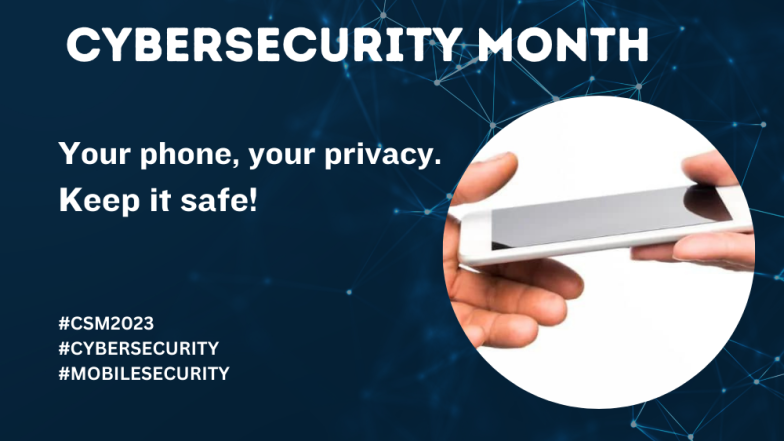
Our mobile devices hold some of our most sensitive and crucial information, such as personal correspondence in emails and text messages, banking information, and cherished memories captured in photos.
Unfortunately, this data can become vulnerable if it falls into the wrong hands. Lending your mobile device to a friend or family member may seem harmless, but it can result in significant privacy breaches. They might unintentionally stumble upon your confidential data or accidentally gain access to personal apps, risking your privacy.
This article highlights effective strategies to safeguard your data, strengthen sensitive applications, and regulate access to your device. This will equip you with the necessary knowledge and tools to create a strong defence for your mobile device.
Enable guest modes or restricted user profiles
To mitigate the risks of unauthorised access, it is essential to exercise caution when handing over your device to someone else. One effective safeguard against these privacy concerns is enabling guest mode or restricted user profile.
Guest modes limit access to specific apps and functionalities, ensuring that the guest user cannot venture into sensitive areas. On the other hand, restricted user profiles create distinct user profiles on your device, each with its own set of permissions and access restrictions. This means your personal data and confidential apps remain inaccessible even when sharing your phone.
By implementing these precautionary measures, you can proactively protect your privacy and maintain peace of mind when allowing others to use your mobile device.
Create strong passwords
The strength of your passwords is fundamental to your digital security. Firstly, never share your password with anyone. To enhance your password security, employ distinct passwords for each account. A practical solution is to use a password manager, which securely stores all your passwords, allowing you to access them with a single master password.
Never resort to the risky practice of writing passwords down in easily accessible places. When crafting passwords, make them long and intricate, incorporating a mix of numbers, special characters, and letters. Avoid using personal details like your name, family name, pets' names, or birthdate. Cybercriminals can often uncover such information on your social media profiles.
For added protection, change your passwords regularly to minimise the risk of unauthorised access.
Enable biometric access control
Beyond passwords, biometric security measures such as fingerprint and facial recognition offer an advanced layer of protection for your mobile device. These cutting-edge technologies provide a strong layer of security against unauthorised access, making them crucial in modern security systems.
By using the power of biometrics, you enhance security and simplify unlocking your phone. Your unique fingerprint or facial features act as a digital key, making it nearly impossible for anyone else to access your device. It’s like having a personalised, virtually impenetrable barrier around your device.
Apart from being secure, biometric security measures are also convenient. You no longer have to worry about remembering complex passwords or the possibility of them falling into the wrong hands. With biometrics, unlocking your phone is as easy as a touch or a glance, while maintaining high resistance to unauthorised entry.
This guarantees that you are the only person with access to your data, which helps maintain your privacy and security with remarkable ease and efficiency.
Use Multi-Factor Authentication (MFA)
Incorporating multi-factor authentication in your digital security measures is crucial to enhance your protection against potential cyber threats. As of August 2022, MFA has been enabled on all UCT accounts. Visit the ICTS website to find out more about MFA at UCT, and familiarise yourself with the MFA setup process.
UCT implemented MFA because relying solely on passwords or biometrics may not be enough to keep your account safe.
MFA adds an extra layer of protection by requiring multiple verification forms before granting access. This multi-faceted approach makes it challenging for cybercriminals to breach your defences. Even if they can obtain one element of your authentication, such as a password, they still need to provide the secondary verification form.
Public WiFi safety
When using public WiFi networks, it’s important to be aware of potential cyber threats. Although public WiFi networks are convenient, they can be vulnerable to malicious activity.
To ensure your WiFi safety, it’s best to connect to secure, password-protected networks wherever possible. These networks require authentication and provide essential protection against hackers.
However, if no secure networks are available, you should use a Virtual Private Network (VPN) like AnyConnect. VPNs encrypt your data, making it unreadable to potential eavesdroppers.
Installing AnyConnect on your mobile device allows you to access the UCT VPN even when off campus. This will ensure a secure connection to UCT’s network, protecting your sensitive information while using public WiFi, no matter where you are. Doing so allows you to confidently navigate public WiFi networks and keep your online security and data protection uncompromised.
Safeguarding mobile privacy is essential in today's data-driven world. Strengthen your defences with robust passwords, biometric security, and MFA. When using public WiFi, choose secure networks and consider a VPN for added protection. It is also important to master access controls and embrace advanced security tech to confidently navigate the digital landscape, ensuring your privacy remains intact.
